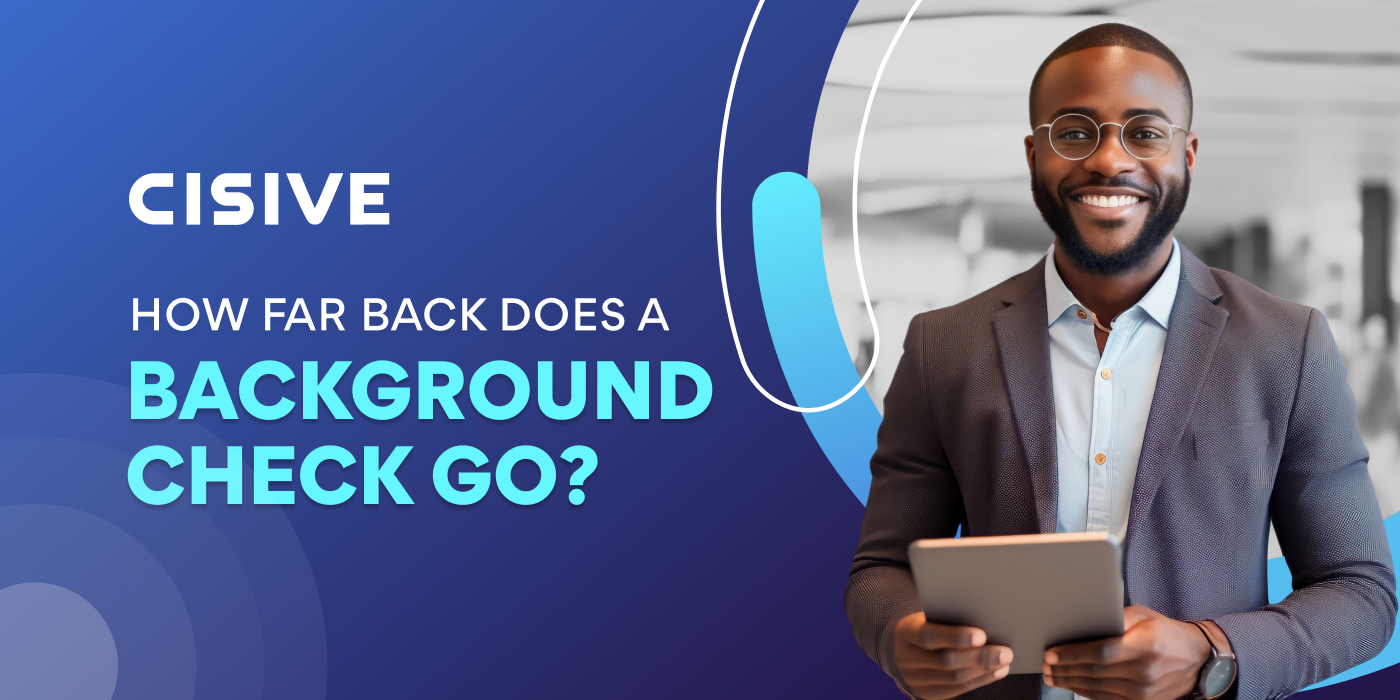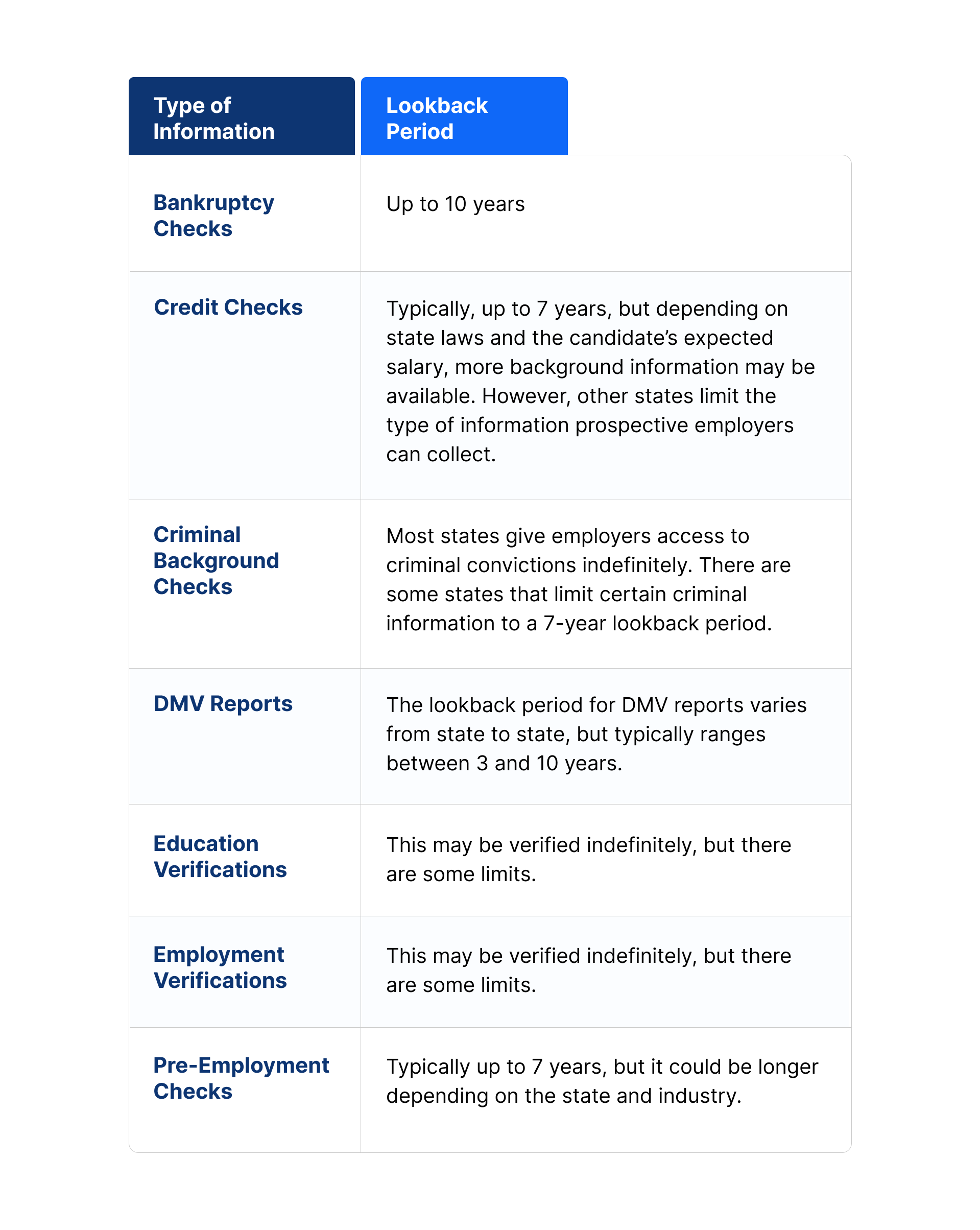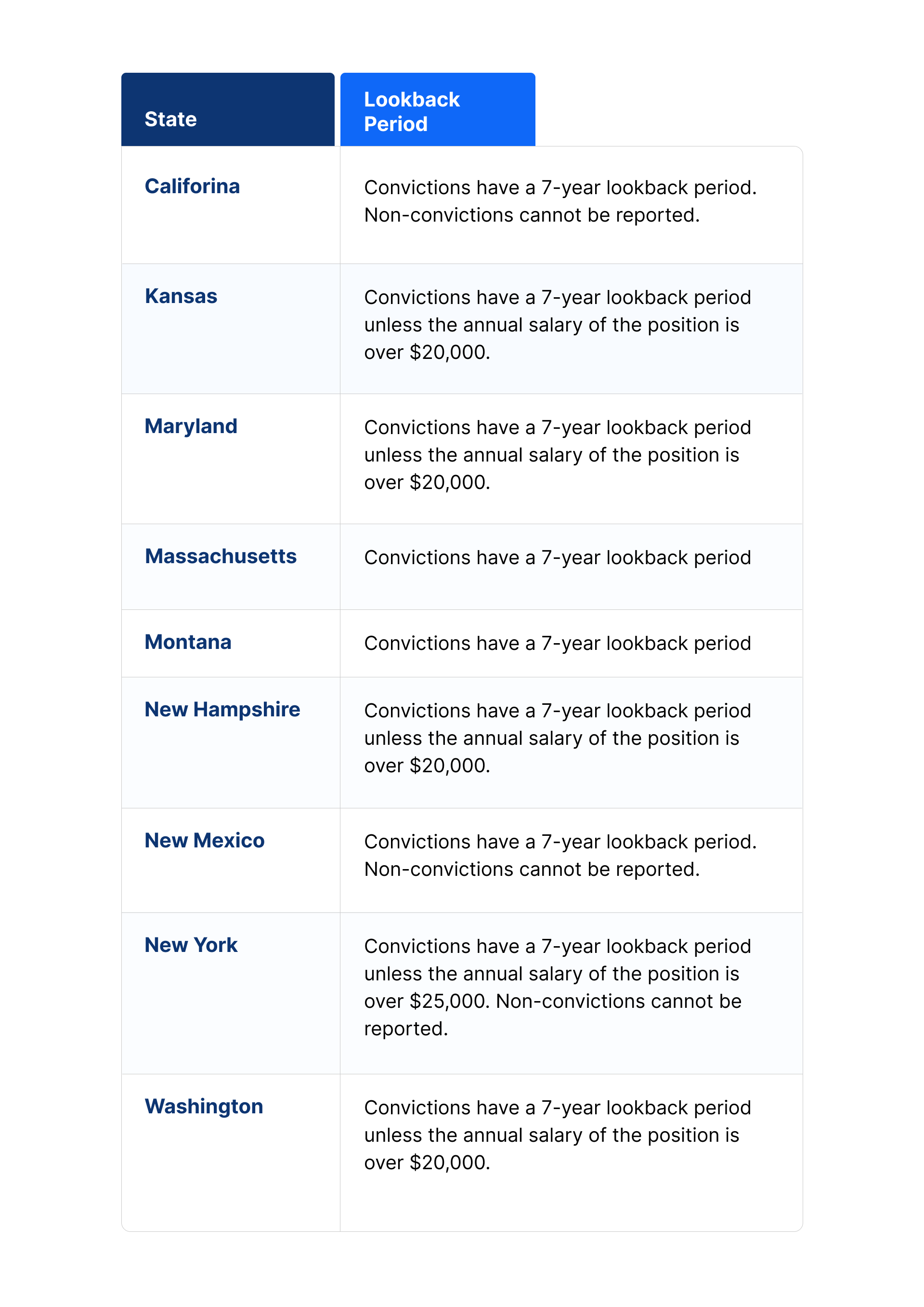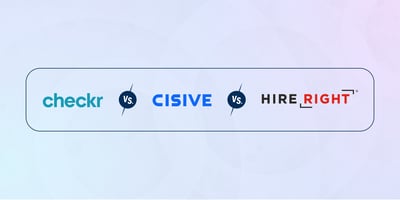

One of the most effective tools for preventing bad hiring decisions is background checks. These...

Did you know that pre-hire background checks come with some limitations?
That’s right. Some background checks only provide details for the last 7 years or so.
As an employer, it’s important to understand how the lookback period for different types of background checks could limit your access to some information. However, it's also important to realize that these regulations are in place to prevent unfair hiring practices.
Before you start using background screening as part of the hiring process, there are several things you should know about the lookback period for a pre-employment background check, including, including:
Partnering with Cisive can help you obtain comprehensive background checks that adhere to all governmental regulations.
Given today’s highly competitive job market, it’s more important than ever for employers to hire the right candidates. To ensure smart hiring decisions, many employers use background checks to gather more information about their prospective candidates.
If your company uses or is planning to use this type of screening process, you may ask, “How far back does a background check go?”
The answer to that question is—it depends. It depends on the type of background check you conduct, where your company is located, and the job role in question.
This guide provides the clarity you need to better understand how background checks work and how far back they go.
Key Takeaways
|
In general, most background checks have a lookback period of 7 years. However, there are several factors that determine how far back a background check can go.
The Fair Credit Reporting Act (FCRA) helps protect individuals’ private information and prevents unfair and biased hiring practices.
First, this law requires employers to obtain the candidate’s written permission before running any type of background check.
Secondly, it limits the lookback period for certain types of information.
Finally, the FCRA requires employers to give candidates a chance to explain any details on their criminal record before making any final hiring decisions.
Another factor employers need to consider is the Equal Employment Opportunity Commission’s (EEOC) recommendation for assessing a candidate’s criminal history. The agency recommends employers consider three factors when evaluating a candidate’s criminal record, including:
Some states have additional regulations that employers must also adhere to when conducting background checks. It’s important to understand various regulations in your specific area so you can stay in compliance.
For example, at least 16 states and dozens of counties and cities have ban-the-box laws in effect that even employers in the public sector must adhere to when recruiting candidates.
This law forbids employers from asking candidates if they’ve been convicted of a crime on the job application. It also requires employers to consider a candidate’s criminal history when making their initial hiring decisions.
The type of information you want to collect is another factor determining the lookback period for background checks.
The table below provides a brief overview of the typical lookback period for various types of background information.

Recommended Reading: The 4 Cs of Onboarding
There are a number of pre-employment background checks employers can use during the hiring process.
The type of check you use depends on your industry and the type of position. For example, if you’re in the healthcare industry, background checks and professional license verifications are a must.
Below is a list of the most common types of background checks employers use, as well as the standard lookback period for each type.
Criminal background checks are one of the most common types of pre-employment checks. Depending on the role, checking for criminal convictions may be a mandatory part of the hiring process.
These records include information about arrests, convictions, warrants, and other criminal court records. You can find out the date of the conviction, if the candidate is still on probation, and other vital information.
In most states, there is no limit to how far back you can check for a criminal record. For instance, if a candidate was arrested for shoplifting 20 years ago, it may still show up on a criminal record check.
However, some states do limit the lookback period for criminal records to 7 or 10 years.
A criminal background check is often a core component of an employment background check, but these assessments can also include a past employment history and education verification, a DMV records check, and a credit history check.
As an employer, it’s important to consider your options and to conduct the types of employment background checks that make the most sense for your organization and remain in compliance with all governmental regulations.
As mentioned above, the lookback period of criminal records can be 7 to 10 years or indefinitely. However, the lookback period for DMV records and credit history checks can be anywhere from 3 to 10 years, and employment and education verifications can be indefinite.
Depending on the position, you may need to run a federal background check. This type of check searches criminal records at the state and federal levels.
These screenings are done using the Public Access to Court Electronic Records (PACER). The lookback period for these records follows FCRA regulations and varies from state to state, just as with criminal background checks.
FBI background checks are more comprehensive than standard criminal background checks. The background checks don’t only screen for criminal records in the state of your location. They also search for records in all 50 states.
This means if the candidate commits a crime in California, but your office is in Florida, it will likely show up on this employment background check.
When conducting an FBI background check, employers must follow all federal and state regulations and limitations.
Some professions require a fingerprint background check before the employee can start working.
For example, those working with children or seniors or those in the healthcare industry often require this comprehensive background check.
The candidate will go to an authorized location, such as a police station, to have their fingerprints taken and provide personal information.
A fingerprint check can verify a person’s identity and ensure they were not charged for a crime under another name. It adds an extra layer of protection for your business and your clients.
Not all employers are authorized to conduct fingerprint background checks.
A Level 2 background check is a special screening process used in the state of Florida.
Organizations that hire employees who will work with vulnerable individuals, including seniors, children, and those with disabilities, are required to conduct this type of background check.
It’s much like fingerprint screening, and records are checked at the federal, state, and local levels. This type of background check also has an indefinite lookback period.
However, there are some limitations to the type of information included. For example, some drug offenses only have a 5-year lookback period.
Recommended Reading: Choosing the Right Reporting Period for Your Criminal Background Check Program
The lookback period for criminal records ranges from state to state. Typically, these states are divided into 10-year and 7-year states.
This labeling is a little misleading because most 10-year states have no limitations, which makes the lookback period virtually indefinite. Most states, 41 to be exact, are considered 10-year states.
However, there are nine 7-year states that limit the lookback period for felony and misdemeanor convictions and non-convictions.
The table below lists the nine 7-year states and any conditions they have.
The most important thing to remember when conducting background checks is to understand all federal, state, and local regulations. This step will help you remain in compliance.
Now that you know how long background checks go back for, you may be wondering, “How long are background checks good for?”
Most experts agree that background checks should be completed on current employees every 2 to 5 years. However, you also need to consider any industry requirements.
Recommended Reading: How Long Is a Background Check Valid After It’s Complete
At Cisive, we offer comprehensive pre-employment background checks that provide a 99.9994% accuracy rate.
We specialize in a number of industries, including healthcare, transportation, finance, enterprise, and business.
Our pre-employment background checks include everything from employment and education verification to financial and criminal screening. We also provide fingerprinting services for more comprehensive background checks.
Speak to an expert today or sign up for a demo and see for yourself how our background screening process works.
Author: Christy Clifton
Bio: Chief Revenue Officer, Cisive. Outside of the office, I spend time outdoors with my husband and two boys. We enjoy mountain biking, boating, snowboarding and hiking as often as we can!
Let's Connect on LinkedIn
One of the most effective tools for preventing bad hiring decisions is background checks. These...
.webp?height=200&name=Update%20Blog%20Image%20(9%20Best%20Background%20Check%20Companies).webp)
Though they've been a part of hiring processes for years, background checks continue to be a...

When hiring employees, it’s important that all your systems create a smooth process and secure...